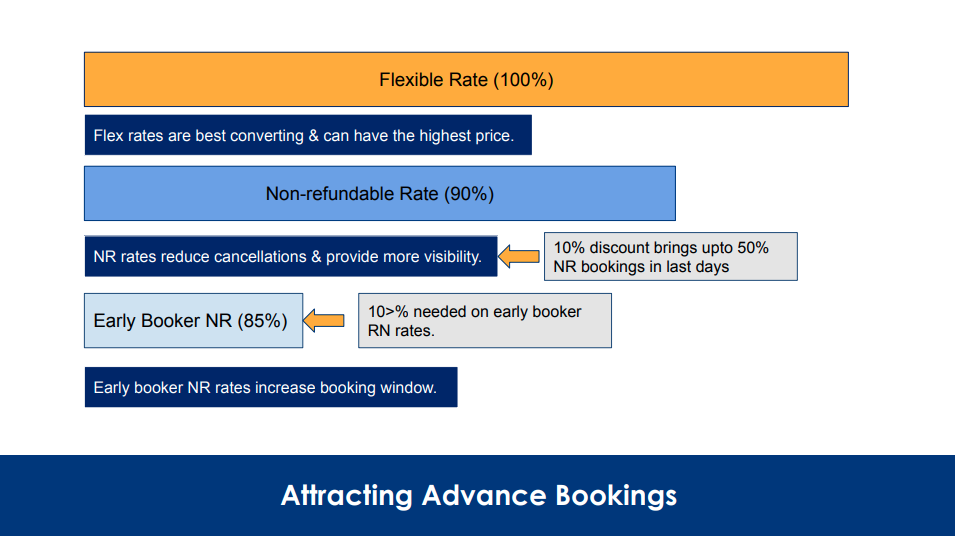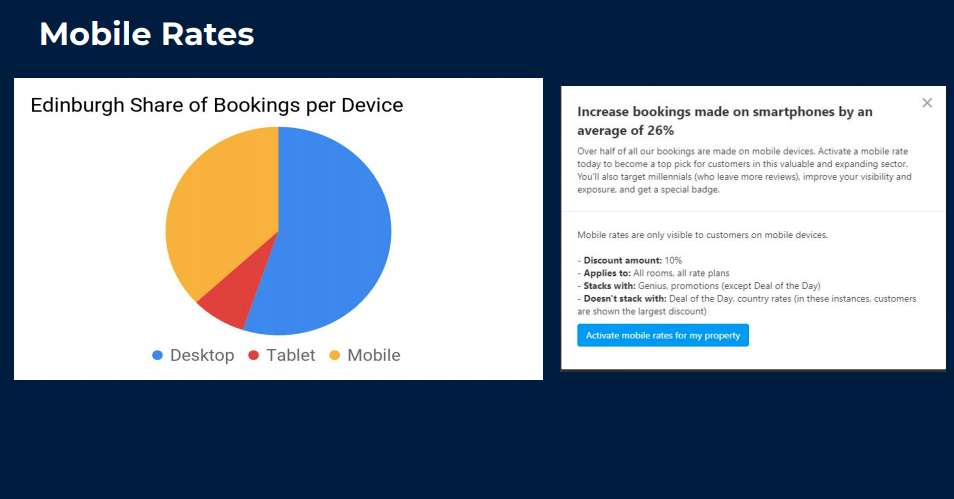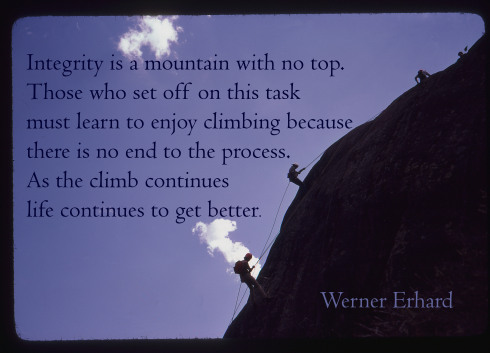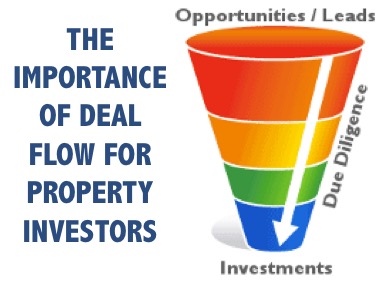Anyone who’s been reading my posts for a while will be aware that our primary trading business is in serviced accommodation – and in February I shared the post titled, ‘4 KEY LEARNS FROM MEETING WITH OUR BOOKING.COM ACCOUNT MANAGER”.
A little over 3 months on we were invited back to the Edinburgh B.com offices to meet with our Account Manager – we met with her this week and I’m so glad we took the time to do that.
In addition to some local market insights, which are always fascinating, we took away several action points to work on/implement. For anyone running their own SA properties and interested in optimising their B.com account, here are the key points from this recent meeting.
LOCAL MARKET INSIGHTS
*In the Edinburgh area market serviced apartments have been out-pacing hotels for bookings throughout spring and up to August however the hotels tend to capture a lot more of the business from September to December. The reason is because hotels typically offer more rate flexibility. SA operators will need to start thinking more like hotels when it comes to pricing and flexibility in order to encourage the bookings further out into the future (see the pic “Attracting Advance Bookings”).

*B.com have seen a decline in the number of advance bookings across the market so they have added an ‘Early Booker Plan’ to help operators attract as many advance bookings as possible e.g within the “Rates & Availability” tab the new early booker rate plan allows you to incentivise bookings far out into the calendar using a discount value of your choice.
*As many Scottish operators have probably observed, there has been a massive increase in the number of serviced apartments available in the Edinburgh area, in particular from SPO’s (B.com speak for ‘Single Property Owners’). These SPO’s often present the lowest cost accommodation to the market as their operating costs are proportionately lower than that of a business. The result is that the ADR (B.com speak for average daily rate, which they track in each major markets) has been dropping.
SO WHAT CAN BE DONE TO OPTIMISE BOOKINGS?
*INCREASE TRUST
In amongst this fast growing sea of properties available, it is important to increase the trust a potential booker can have with you and your listing. To do this be sure to create a professional Host/Company Profile with logo and background details to help guests feel at ease and in safe hands.
*IMPROVE LISTING CONTENT
Check your content scores that they are up at 100% and also check the order of your pictures. According to the B.com team bookers like to see a clear external photo of your property early on. The minimum recommended number of pictures is 24 so think about your properties key selling points and features ie is it the amazing kitchen and living space (ie features that hotels don’t have) or the fact that you have all the kitchen utensils and equipment needed to cook full meals at the property?
*NEW MOBILE RATE
Make use of the new mobile discount rate. B.com have seen significant growth in the number of people starting to book via their mobile device, so to serve that sector have launched a new product which is the mobile rates discount. By offering a 10% mobile booking discount they are tracking an increase in bookings made on smartphones of 26% on average.

*HIGHER VISIBILITY IS BETTER THAN JUST PRICE DROPPING
More bookings will come from higher visibility and better conversions, that’s why it’s better to find ways to be seen by more potential bookers rather than just drop prices and hope to be found. The key methods for increasing visibility are:
-via the Mobile Rates discount [note you have to be comfortable offering a 10% discount]
-via the Genius Programme [this makes you visible to more committed bookers ie repeat travellers and business travellers, again you need to be OK with a 10% discount for this]. *Note, if you sign up for both Genius and Mobile discount that will be a total of 20% so do one or the other.
-via the preferred programme [your listing has to hit a certain performance score but once you qualify you will be boosted to more people. No discount is offered to bookers but B.com will charge 18% instead of 15% comms].
-and finally if you drop to a 2 night minimum stay you will appear in more searches [and to protect your margins you can create a 2 night rate that is more expensive per night than say a 3 night rate, you can also choose when the 2 night min stay can apply].
And there you have it, our learnings and insights from another great meeting with b.com.
What other tips can you share for optimising bookings with the online travel agents?





